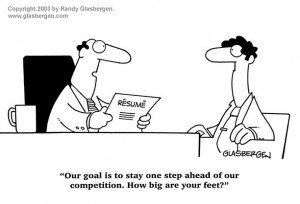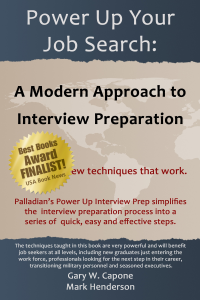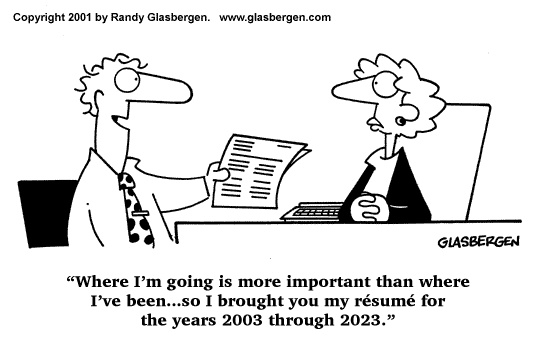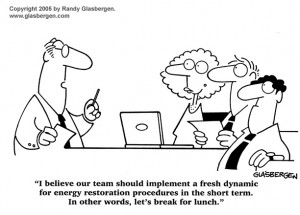 Have you ever been asked a question in an interview that strikes you as complete ridiculous? The kind of question that makes you wonder how the person across the desk was able to get their job if they think a question like that is valuable.
Have you ever been asked a question in an interview that strikes you as complete ridiculous? The kind of question that makes you wonder how the person across the desk was able to get their job if they think a question like that is valuable.
At some point in your job search, you may be asked a question that seems valueless, or just plain stupid. Some people react to a question like this by making a joke out of it, asking if the interview is serious or stating that they think it’s dumb question. These responses are mistakes.
If an interviewer asks a question, they have a reason for asking it. It’s important to them. It may indeed be ridiculous and the basis of the question may not make any sense to you, but the interviewer asked it because they want the answer. If your reaction shows you don’t respect the question, it will hurt your chances. Even worse, the interviewer may have a very good reason for asking the question due to some detail of the position you do not know.
There are no stupid interview questions. Regardless of your feelings of the value of a question, the judge of each question and answer is the interviewer. Additionally, there are interviewers that intentionally throw in off the wall questions to see how the candidate will react. In this case, the interviewer doesn’t really care about the answer. They are more interested in the ability of the job seeker to stay focused and professional.
As you prepare for an interview, it is important to consider how you will react to a question that completely surprises you. No matter how much you prepare, there is always a chance that the interviewer will ask a question you didn’t anticipate. How you respond to being blindsided can make or break an interview.
If you get a question that surprises or stumps you, take a few seconds to answer. A short pause to think will not hurt the impression you make. If you need more than a couple seconds, stall. A simple phrase, such as: “That’s an interesting question,” followed by a restatement of the question can help you formulate your answer. Avoid the temptation to just start talking. Many people, when nervous and faced with a question they didn’t expect panic and start talking immediately – before they know what they are going to say. If you avoid this, you will make a much better impression.








 The military provides a tremendous number of educational opportunities, ranging from short training classes up to year long programs. Knowingwhat to include on you resume can be a challenge. Many people transitioning from the military include too much information.
The military provides a tremendous number of educational opportunities, ranging from short training classes up to year long programs. Knowingwhat to include on you resume can be a challenge. Many people transitioning from the military include too much information.